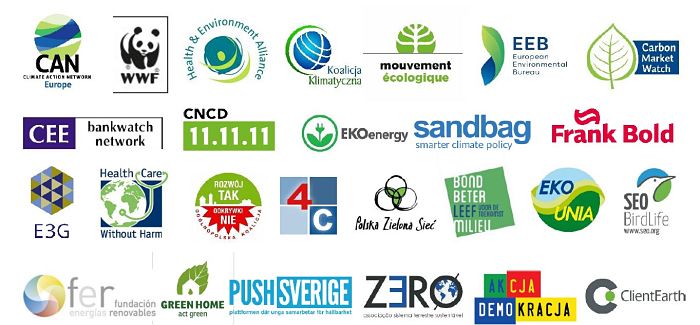As EU member states, regional and local authorities prepare to implement the revised Ambient Air Quality Directive (AAQD), this briefing by the Health and Environment Alliance (HEAL) argues that decision-makers and authorities should pay particular attention to addressing socio-economic inequalities in their clean air efforts. The swift transposition and implementation of the new rules, with strengthened administrative collaboration and the full utilisation of financial support schemes, promise significant progress towards cleaner air across Europe. Improved air quality will be beneficial to everyone and contribute to preventing health inequalities for those living in socioeconomically disadvantaged areas.

Dear Environment Minister,
Ahead of the upcoming trilogue meeting on the revision of EU’s Emission Trading System (ETS), the undersigned, representing 30 networks and organizations representing citizens from across Europe, would like to urge you to ensure that the funding mechanisms dedicated to help lower-income Member States transform their energy systems (article 10c and the Modernization Fund) are robust and well-designed to truly support the development of renewable energy and energy savings instead of subsidizing coal plants.
If the EU wants its policies to be consistent with the long-term objectives of the Paris Agreement, it needs an ambitious ETS with a strong price signal. In addition, it cannot continue to subsidize coal power plants. We therefore call on you to support proposals that:
1. Exclude investments in coal power under Article 10c particularly through supporting a 450gCO2/kWh investment eligibility criterion.
Article 10c is a transitional mechanism aimed at supporting the transformation and diversification of our energy systems. However, currently a vast majority of up to €12 billion investments through article 10c finance the expansion of fossil fuel capacity in Central and Eastern Europe (CEE), including hard coal and lignite. Allowing for these funds to continue subsidizing coal and lignite will have detrimental impacts on both the climate and public health. Furthermore, it will hinder the transition to an economy that is highly efficient and truly based on renewables. Article 10c should be used to shift more investments to energy efficiency and renewable energy sources.
2. Exclude investments in coal power and secure strong governance of the Modernisation Fund with a balanced role for all Member States (both beneficiary and non-beneficiary) as well as the European Investment Bank (EIB) in setting out investment guidelines for projects.
Just as Article 10c, the Modernization Fund should not subsidize coal power in order to avoid dangerous lock in to coal for the coming decades. This can be accomplished by adopting either the 450 gCO2/KWh investment eligibility criterion proposed by the European Parliament or by maintaining the text included in the “general approach” agreed on February 28. Moreover, a the Modernisation Fund comes from a collective funding basis that represents European resources, it must be collectively managed. The European Investment Bank should have a decisive role in the selection of projects to benefit from the Fund. Day to day management must be in the hands of an independent management committee, with expertise on project development and finance. Strict monitoring tools should be put in place, and deterring penalties for countries manipulating the Fund should be foreseen.
3. Support establishing a Just Transition Fund
Some low income communities and regions will need support to transition away from coal. It is therefore essential to establish a Just Transition Fund, in order to ensure that no one is left behind in the transition to a safe, clean and mutually prosperous Europe.
We hope that you will show your support to the above ahead of the upcoming trilogue meeting.
Yours Sincerely,
Networks:
1. Climate Action Network Europe, representing 130 member organizations across Europe
2. Health and Environment Alliance (HEAL), representing 75 member organizations across Europe
3. European Environmental Bureau (EEB), representing 140 member organizations in European Union
4. CEE Bankwatch Network, representing 16 member organizations in Central and Eastern Europe
5. Bond Beter Leefmilieu, representing 160 member organizations, Belgium
6. Health Care Without Harm, representing 82 member organizations, Belgium
7. EKOenergy, representing 45 member organizations, Finland
8. Fundacja “Rozwoj TAK – Odkrywki NIE”, representing 8 member organizations, Poland
9. Polish Green Network, representing 11 member organizations, Poland
10. Koalicja Klimatyczna, representing 22 member organizations, Poland
Organizations:
11. CNCD-11.11.11, Belgium
12. Frank Bold, Czech Republic
13. E3G, European Union
14. Client Earth, European Union
15. Carbon Market Watch, Europe
16. WWF Greece
17. WWF Hungary
18. WWF Italy
19. Mouvement Ecologique (Friends of the Earth Luxembourg) , Luxembourg
20. NGO Green Home, Montenegro
21. Concerned Citizens against Climate Change, Netherlands
22. Stowarzyszenie Ekologiczne EKO-UNIA, Poland
23. Akcja Demokracja, Poland
24. WWF Poland
25. ZERO – Associação Sistema Terrestre Sustentável, Portugal
26. FUNDACIÓN RENOVABLES, Spain
27. WWF Spain
28. SEO/BirdLife, Spain
29. PUSH Sweden
30. Sandbag, UK
The PDF file can be found here.



